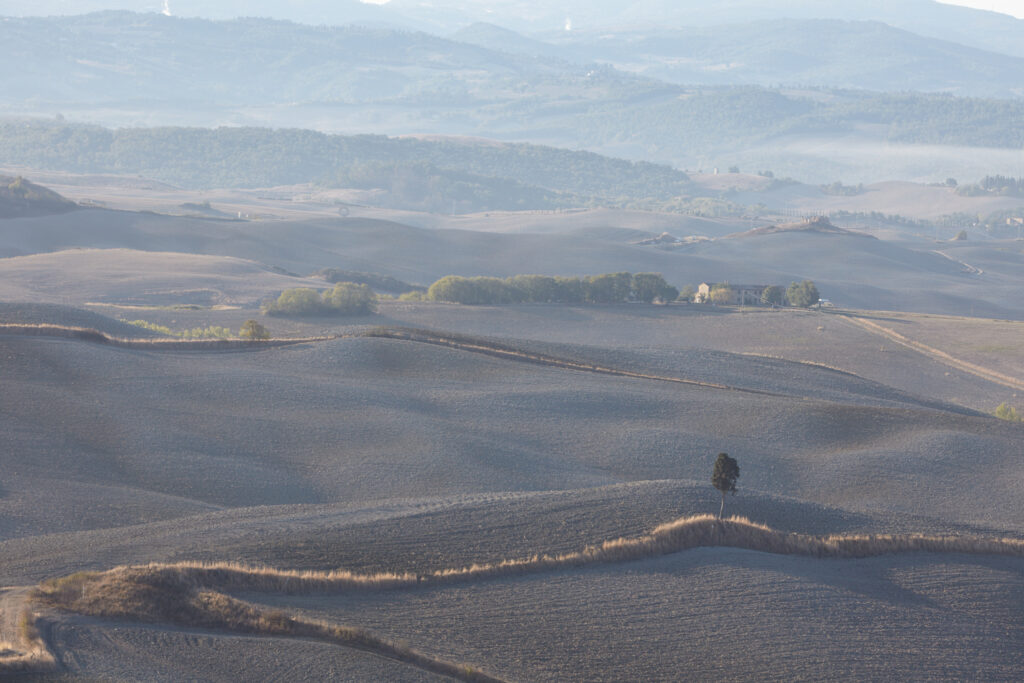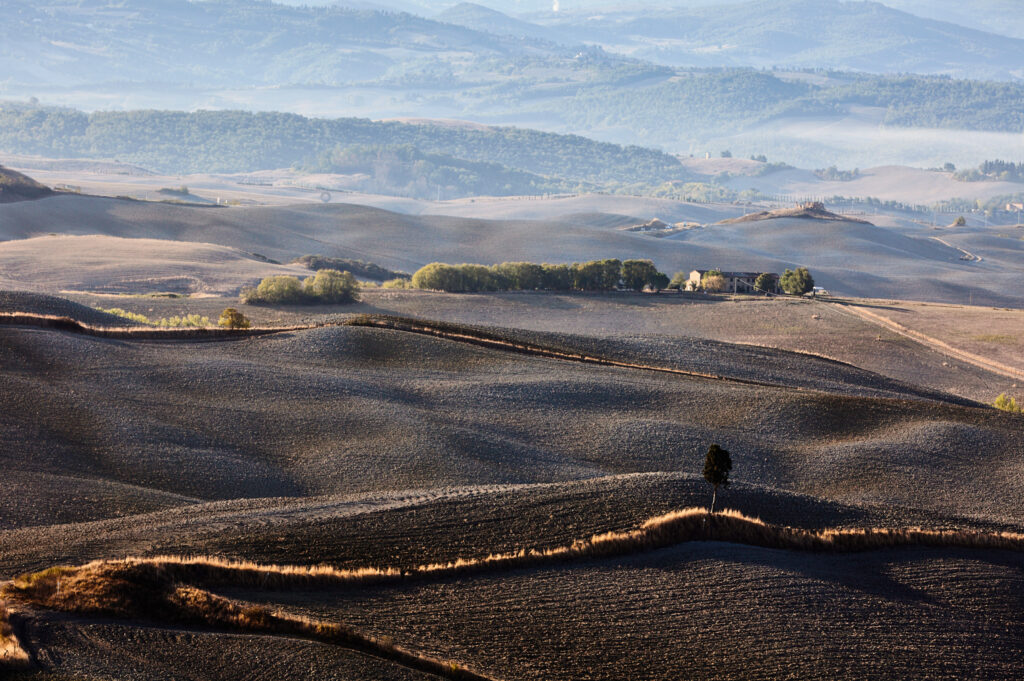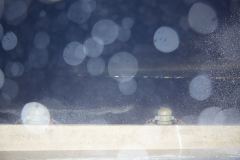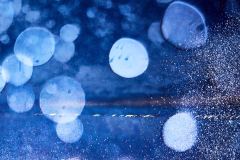

Take a close look at the two photos above. In our Gallery on Tuscan Landscapes I included the second version of one of my favorite images. Two questions for you. Which version do you like better? Is it ethical to change the photo in post processing?
Photographing landscapes and editing the results can be seen as an ethical task. Do we create a copy of a scene or do we create what we think we saw or do we alter reality and create a piece of art? On our Antarctica trip we met the purist photographer and instructor Stephen Johnson who told us that he would not even remove a can of pop at a nature site he photographs in order to display a true and authentic landscape. The statement below shows his purist thinking.
It is simply an extension of our ability to record what we see. When digital compositing is used on scanned film photographs or digital originals, the ability to deceive rises to new heights. Then I think it is a matter of telling your viewer that the image has been altered, and let them enjoy it or not based on an informed aesthetic.
Stephen Johnson, Landscape Photographer and Workshop Instructor, Life Magazine Article Interview, 10/97
I, for my part, enhance color, might sharpen, and crop if I feel this image is more real to my inner eye this way. Very few images even become abstracts, pieces of photographic art as you can see below.


